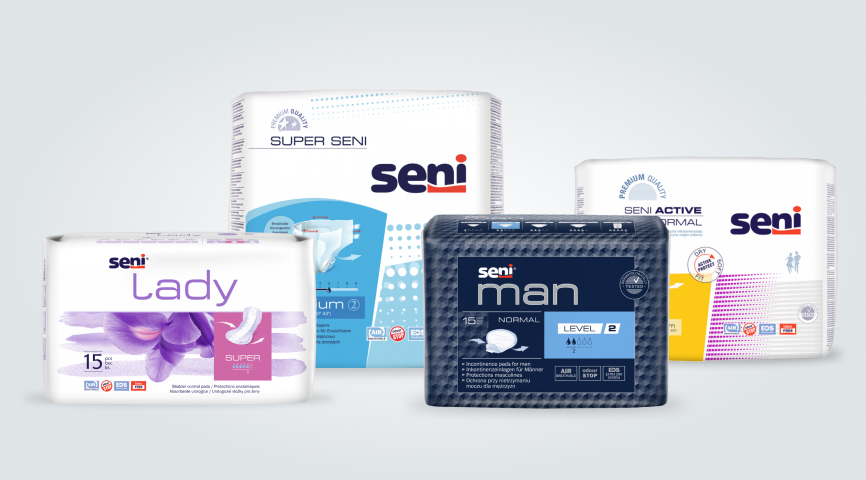

15.09.2020
The best way to manage incontinence is to take it step by step. Some actions that seem small or insignificant may be extremely helpful. A positive attitude and a willingness to introduce positive change into your life are crucial components.
Drink enough fluids
The body needs a daily allowance of fluids in order to function properly. The amount varies with age, gender, ambient temperature, or the intensity of daily activities, but the body is able to express when it needs fluids. When you feel thirsty, drink!
Remember:
Note: Some herbal teas (e.g. nettle tea) have a diuretic effect. Some fruits, like watermelons or cherries also have this effect.
Limiting fluids to reduce incontinence is not a good solution. Drinking less might decrease urination but will also decrease bladder capacity. This means you might feel the urge to urinate more often than before, even when the bladder isn’t filled up.
Drinking insufficient fluids may lead to dehydration which can be a serious health matter.
Initial symptoms of dehydration:
Further symptoms of progressing dehydration include gradual energy loss and physical or mental impairment. Progressing dehydration is a serious threat to one’s health.
Keep a healthy diet and take care to relieve yourself regularly
Keeping a healthy diet provides the body with all the necessary nutrients and ensures one’s wellbeing. A balanced diet also helps to avoid problems with digestion. Frequent constipation caused by a poor diet expands the end of the digestive tract. This can put pressure on the bladder and irritate it, limiting its capacity. Additionally, pressure on the urethra can make it difficult to void the bladder, leading to overflow incontinence.
A few rules for healthy dieting that can help you avoid digestive problems:
Being overweight can be a cause of urinary incontinence. Excessive amounts of fat in the abdominal area makes the pelvic floor muscles weaker, putting pressure on internal organs like the bladder.
Losing weight can be challenging, but it’s not impossible. The healthiest way to lose weight is to do it gradually. This can be accomplished by keeping a healthy diet and exercising regularly. People who are unable to exercise are advised to try other forms of physical activity. Walks, for example, are a low impact form of physical activity and can also positively affect one’s mood.
Adjust your environment
Providing easy toilet access is one of the most crucial factors in influencing the way incontinent people feel. Adjusting the environment is important for people with limited mobility. Knowing that the way to the toilet is simple and easy makes going to the toilet seem less stressful. This can limit the frequency of urine loss.
What can help?
Employ preventive treatment
A little effort put into preventive treatment can save you a lot of pain and difficulty with urinary tract infections or skin irritations that may develop into bedsores. Bedridden people are more susceptible to infections and the skin of incontinent people is constantly exposed to wetness from irritant urine. It is important to pay special attention to hygiene.
Remember:
You can read more about the proper hygiene for incontinent people here.
A well-chosen product means both the patient's comfort and less risk of serious pressure sores, as well as less work for the caregiver. Choose a product with our help.
Choose productChoosing the right product is very important.
That is why, we created a simple tool called "Diagnostics".